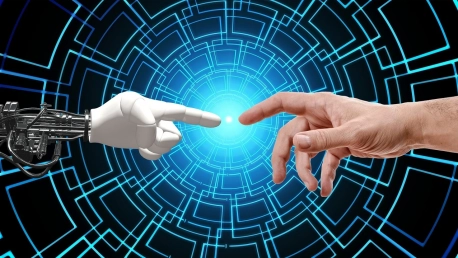As the digital era progresses, artificial intelligence (AI) is revolutionizing how businesses manage their most vital asset—human resources. From the automation of routine tasks to advanced analytics influencing strategic decisions, AI is reshaping the HR landscape. This article delves into the transformative role of AI in Human Resource Management (HRM), outlining its benefits, challenges, and the need for a harmonious integration with the human elements of the field.
The Advantages of AI in HRM
AI-Powered Recruitment
In the realm of recruitment, AI has unleashed a new level of efficiency and objectivity. Algorithms sift through mountains of applications to identify the most promising candidates, sidestepping unconscious biases that often plague human decision-makers. This not only accelerates the hiring process but also helps in cultivating a more diverse workforce.For instance, global giant Unilever has revolutionized its recruitment strategy by implementing AI, which aided in processing around 250,000 applications in a year. Through games and video interviews analyzed by AI, Unilever managed to cut down on hiring time and gain a deeper understanding of the candidates’ capabilities.Additionally, the onboarding process is undergoing a transformation, as AI-driven insights allow for customized experiences tailored to the competencies required for individual roles. AI empowers new employees with personalized training and helps them integrate into company culture, fostering both immediate productivity and long-term engagement.
Enhancing Performance Management
AI is shifting the paradigm in performance management by offering a lens of objectivity. Traditional reviews, often laden with cognitive biases such as halo or recency effects, can undermine employee morale and the accuracy of evaluations. AI algorithms, on the other hand, can systematically analyze performance data over time, providing a balanced assessment.Thought leaders like Harvard Business Review have explored how AI can also aid in identifying development opportunities and predicting future performance. By leveraging historical data, AI can offer deeper insights into an individual’s strengths and areas for improvement, allowing for more nuanced, data-driven conversations between managers and their teams.
Strategic Workforce Planning
Preparing for the future of work is paramount, and AI plays a crucial role in workforce planning. The technology’s predictive capabilities enable companies to anticipate shifts in demand for certain skills and initiate suitable training programs. This proactive approach ensures businesses remain competitive in an ever-changing landscape.McKinsey & Company has highlighted that AI is critical in forecasting talent flux and planning strategic workforce initiatives. By analyzing market trends and internal data, AI can signal skill shortages ahead of time, allowing organizations to adjust their recruitment and employee development strategies accordingly. This insight ensures that the right people with the right skills are in the right place at the right time.
Navigating the Challenges of AI in HRM
Data Privacy and Security
While the benefits of AI in HRM are plentiful, they bring forth significant security concerns. Data privacy becomes even more pivotal as HR departments deal with sensitive personal information. AI-related data breaches have underscored the need for stringent security measures and compliance with data protection laws like GDPR.It is imperative for organizations to establish robust protocols and invest in encryption and cybersecurity defenses. Additionally, HR professionals must be trained in data protection best practices to minimize risks and maintain the trust of their workforce.
Tackling AI-Induced Biases
Despite AI’s potential to reduce bias, it is not immune from reflecting societal prejudices present in training data. Without careful examination, AI systems might inadvertently perpetuate discrimination in hiring processes and performance evaluations, as revealed by research from the MIT Media Lab.To counteract this, it is crucial to employ diverse datasets and subject AI tools to consistent audits. Organizations must be proactive in refining their AI systems, ensuring fairness and addressing any discrepancies that arise from biases. This commitment fosters a culture of inclusivity and equity within the workplace.
Balancing AI with the Human Touch in HR
The Indispensable Role of Human Skills
AI cannot substitute the empathic understanding and communication skills intrinsic to human resource professionals. Deloitte, among other HR experts, emphasizes that while AI can process data and manage tasks, it lacks the capacity to deal with the emotional complexities of human interactions in the workplace.HR managers and staff must continue to cultivate these irreplaceable human skills, providing personalized support that technology alone cannot offer. The nuances of employee relationships and the understanding of individual aspirations are areas where the human touch remains indispensable.









